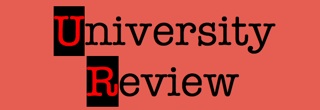University of Innsbruck Information
The University of Innsbruck, located in the Tirol region of Austria, was established in the mid 16th century from money earned from the local salt mines.
Today it is governed by the rector Karlheinz Töchterle and caters for a student population of around 20,000 people. University of Innsbruck ranks as the 87th best university in Europe. Other colleges in Austria include University of Vienna, and places with similar rankings include University of Gothenburg and Umea University.
Following a re-organization of the university in 2004 (in which the medical school broke away and became a university in its own right), the university of Innsbruck now has fifteen distinct faculties; these cover study in the following core subject areas:
Architecture; Biology; Bio ethics; Catholic Theology; Chemistry and Pharmacology; Civil engineering; Economics and Statistics; Educational Science; Geography and Atmospheric Sciences; Mathematics, Infomatics and Physics; Marketing; Politics and Sociology; Philosophy and Culture Science; and Psychology and Sports science;
Over its long life the University of Innsbruck has built up an enviable list of alumni including two noble prize winners Viktor Franz Hess (physics) and Hans Fischer (chemistry). Other famous faculty include Rudolf Grimm, Heinz Fischer, Karl Rahner and Claudia Werlhof.
An alternative write of the University of Innsbruck
The University of Innsbruck, or the Leopold-Franzens-Universität Innsbruck, is a public university in Austria founded in 1669. Even before its establishment as a university, it was a grammar school run by the Jesuits. In 1669, Leopold I declared the institution a university with only four faculties. Although its stature was lowered to a lyceum years later, it was re-established in 1826 by Emperor Franz I as the University of Innsbruck. Its German name is derived from its ‘founding fathers’, Leopold and Franz. It is one of the oldest universities in Austria.
After the university’s reorganization last October 2004, the number of faculties was increased from six to 15, to accommodate the university’s 70 degree programs. These faculties include the Catholic Theology Faculty, History of Philophy Faculty, Philosophy and Culture Science Faculty, Faculty of Law, Faculty of Politics and Sociology, Faculty of Marketing, Faculty of Economics and Statistics, Faculty of Educational Science, Faculty of Biology, Faculty of Geography and Atmospheric Sciences, Faculty of Chemisty and Pharmacology, Faculty of Psychology and Sports science, Faculty of Mathematics, Informatics and Physics, Faculty of Civil Engineering and Faculty of Architecture.
Unlike most universities, the different faculties are not housed in one or two buildings. The university’s different buildings are scattered across Innsbruck. Most university buildings were handed down by the Jesuits.
Aside from its undergraduate offerings, students can also pursue PhD degrees in the university. Most of the university’s doctoral students also serve as part-time professors and teaching assistants. The university also has masters level studies as well as several research opportunities.
The university has several graduates who have done exceptional work in the field of Science and Medicine. Among them are Hans Fischer, a chemist renowned for his studies in chlorophyll and hemoglobin; Victor Francis Hess, the physicist partly responsible for discoveries in cosmic radiation; and Fritz Pregl, a chemist/physician who made great contributions to the field of quantitative organic microanalysis. All three were Nobel Prize winners.
University of Innsbruck Address
Leopold-Franzens-Universität
Christoph-Probst-Platz
Innrain 52
Innsbruck 6020
Austria
Ranking and Quick Facts
| University world Ranking – Times 200 (UK) |
= 225
|
||
| University world Ranking – Jiaotong 500 (China) |
305 to 402
|
||
| European rank (Jiaotong) |
124 to 172
|
||
|
Leopold-Franzens-Universität Innsbruck Facts
|
|||
| Students (Undergraduates / PG/ Total) |
12,130
|
10,520
|
22,650
|
| Faculty (Professors/Academics) |
785 / 1145
|
||
| Established |
1669
|
||
